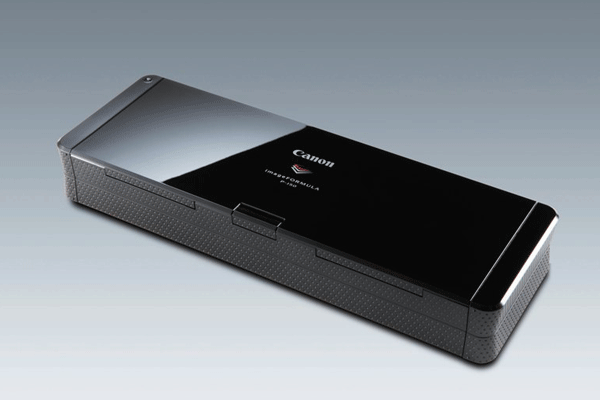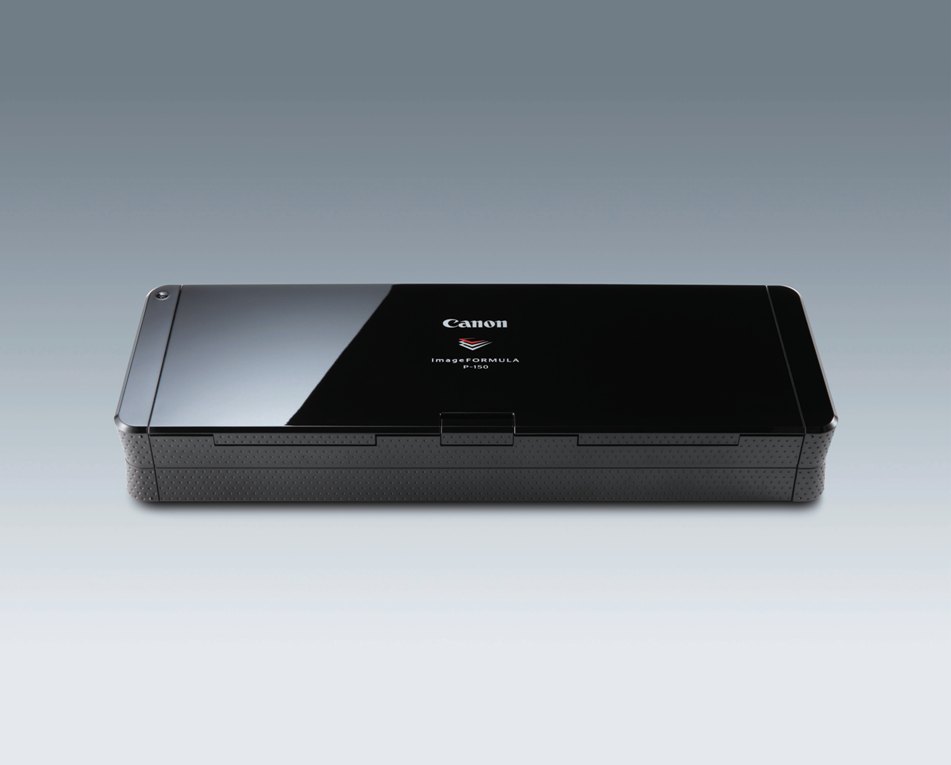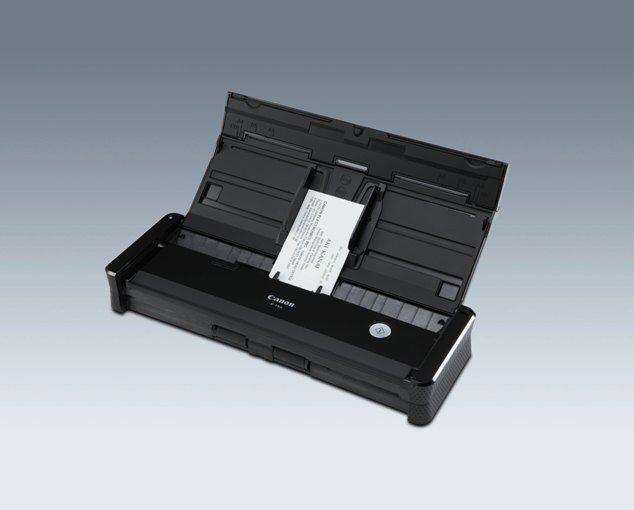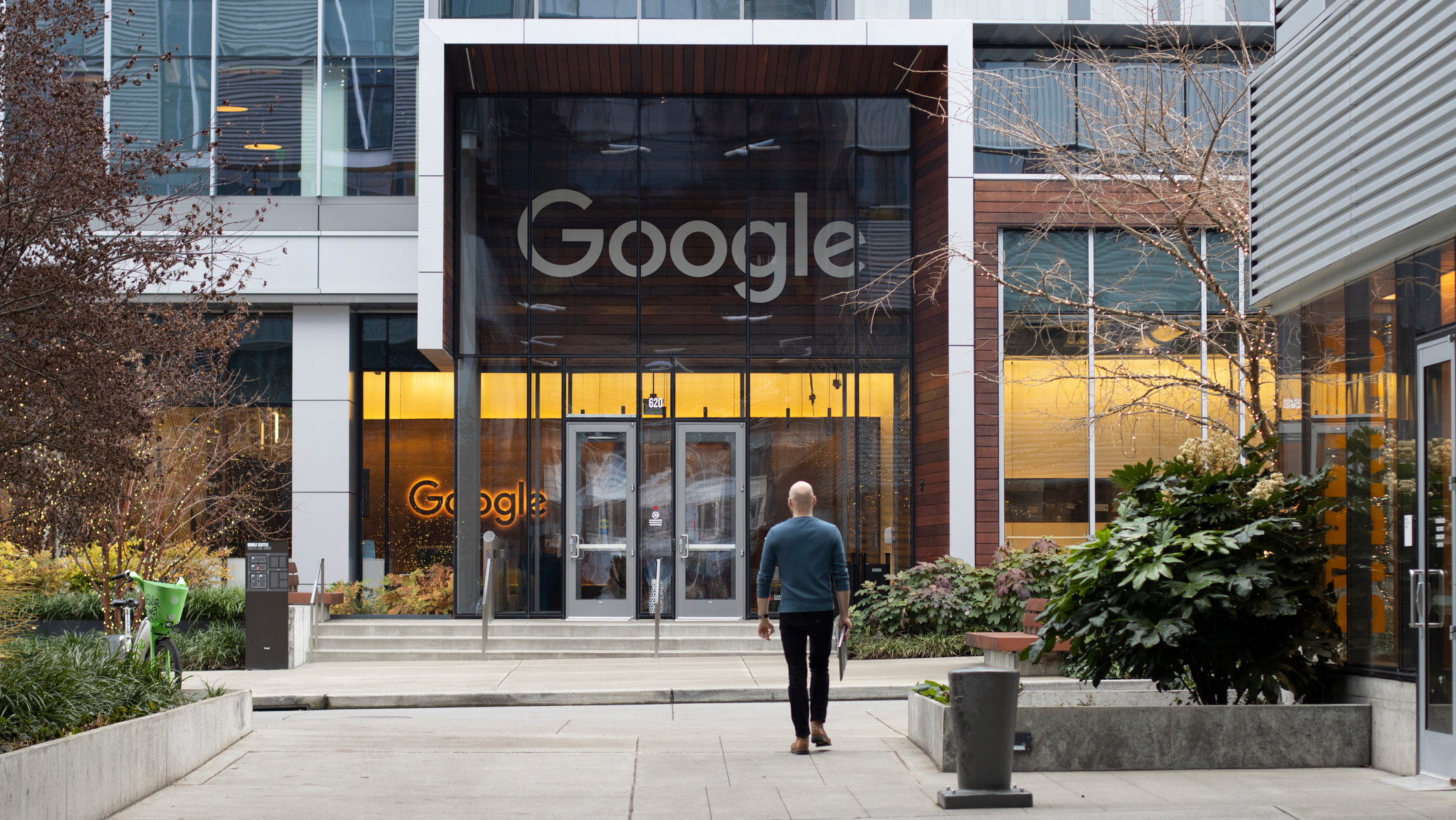Canon Imageformula P-150 review: portable scanner
Canon touts the P-150 as the fastest portable scanner in the world. We review it to see if it's got the quality and usability to match.

For deskbound office users, the Imageformula P-150 is too expensive and its highest quality scan mode too slow to make it worth buying, even if you're desperate to save desk space. However, if your business relies on travelling representatives who need to file signed documents with a distant head office, this sturdy, high-quality scanner is an excellent choice.

Business trips, field work and meetings away from the office can all be sabotaged by a lack of essential equipment, particularly when it comes to printing and scanning. Canon's Imageformula P-150 sets out to solve one of those problems.
This is a portable scanner that can be folded down to just 42 x 282 x 98mm. Despite its remarkably small size, the P-150 is a fully-functional duplex sheet-fed document scanner, capable of batch scanning up to 20 sheets at a time.
Its folding design is ingenious. A rear paper feed unclips and hinges up and out from the scanner's brick-link folded state. Guides fold out from the tray itself to support paper of any height and width up to A4. The main body of the scanner also hinges open to allow access to the feed roller and separation pad, which ensure the seamless feeding of scanned documents. These are consumable parts. You'll be prompted to replace the roller after 100,000 sheets have been scanned and the separation pad is good for 10,000 pages.

A4 pages were fed smoothly, without any of the issues with alignment, skewing, creasing or paper jams that we've seen from some sheet-feed scanners. For optimal scan speeds the P-150 requires two free USB ports - one for data, and one for power, although it can run off a single USB port. A mains adaptor is also available.

It's very quick - we scanned 10 duplex pages in just one minute, three seconds at the scanner's default 200dpi. At the P-150's maximum resolution of 600dpi, everything moves a bit more slowly: 10 single-sided full colour pages were scanned in seven minutes and 39 seconds. A single page 600dpi scan took 50 seconds. While this compares well to a typical flatbed, it's significantly slower than most office sheet-fed scanners. The same page scanned in just eight seconds at 200dpi and 11 seconds at 300dpi.
Get the ITPro daily newsletter
Sign up today and you will receive a free copy of our Future Focus 2025 report - the leading guidance on AI, cybersecurity and other IT challenges as per 700+ senior executives
K.G. is a journalist, technical writer, developer and software preservationist. Alongside the accumulated experience of over 20 years spent working with Linux and other free/libre/open source software, their areas of special interest include IT security, anti-malware and antivirus, VPNs, identity and password management, SaaS infrastructure and its alternatives.
You can get in touch with K.G. via email at reviews@kgorphanides.com.
-
 ‘Phishing kits are a force multiplier': Cheap cyber crime kits can be bought on the dark web for less than $25 – and experts warn it’s lowering the barrier of entry for amateur hackers
‘Phishing kits are a force multiplier': Cheap cyber crime kits can be bought on the dark web for less than $25 – and experts warn it’s lowering the barrier of entry for amateur hackersNews Research from NordVPN shows phishing kits are now widely available on the dark web and via messaging apps like Telegram, and are often selling for less than $25.
By Emma Woollacott Published
-
 Redis unveils new tools for developers working on AI applications
Redis unveils new tools for developers working on AI applicationsNews Redis has announced new tools aimed at making it easier for AI developers to build applications and optimize large language model (LLM) outputs.
By Ross Kelly Published
-
 Google layoffs continue with "hundreds" cut from Chrome, Android, and Pixel teams
Google layoffs continue with "hundreds" cut from Chrome, Android, and Pixel teamsNews The tech giant's efficiency drive enters a third year with devices teams the latest target
By Bobby Hellard Published